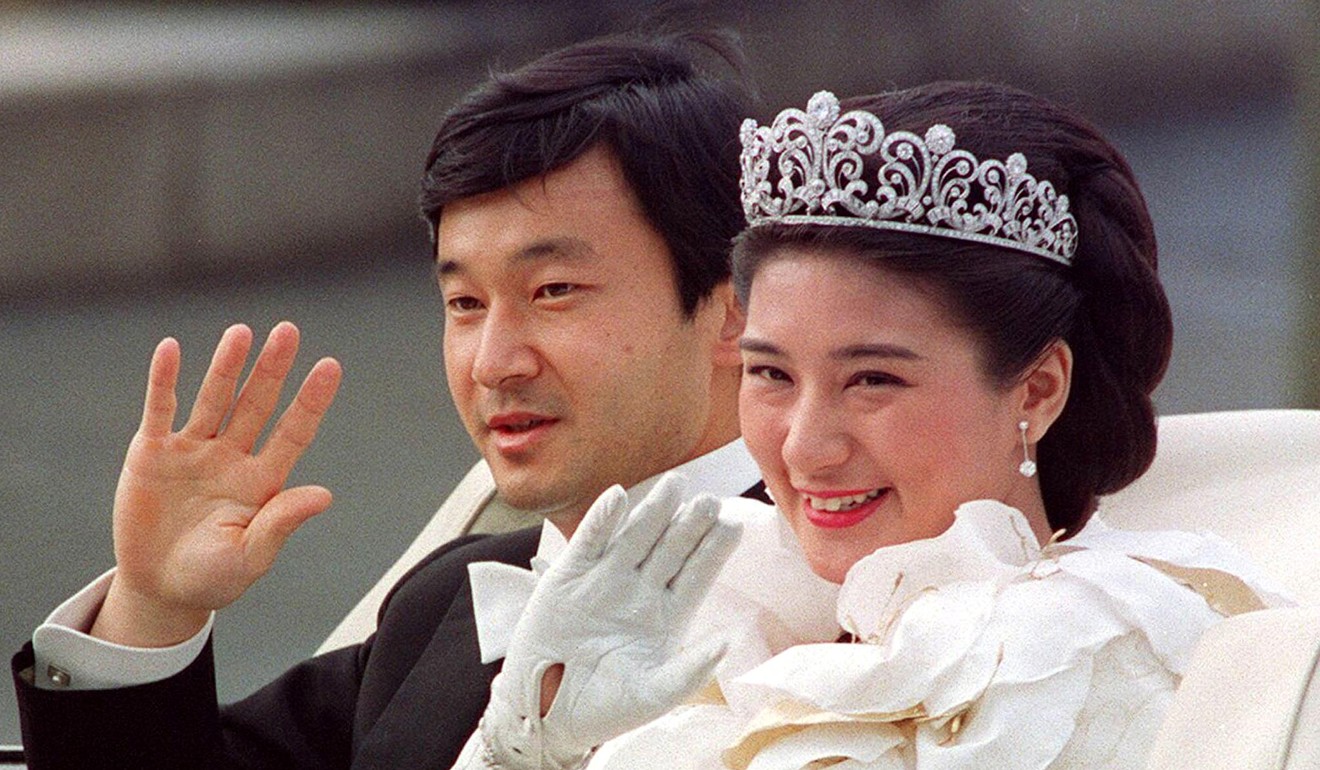
Harvard expert Ezra Vogel says Japan’s Empress Masako will perform role ‘effortlessly’
- Vogel was commenting on Empress Masako, a Harvard graduate and former diplomat, ahead of her husband Emperor Naruhito’s enthronement ceremony next week
- The Japan and China expert has known Masako since she was in high school, due to his friendship with her father, former vice-foreign minister Hisashi Owada
Ezra Vogel, the famed US expert on Japan and China and professor emeritus at Harvard University, believes Empress Masako will prove an effective communicator for Japan on the world stage due to her diplomatic experience and command of languages.
“She’ll be able to do it effortlessly,” said Vogel, a long-time friend of the empress’ family, in a recent interview.
Vogel, 89, first met Masako when she was a high school student. He was invited to a family meal by her father Hisashi Owada, 87, who became a visiting professor at Harvard in 1979. The scholar is a long-time friend of Owada, a former vice foreign minister and president of the International Court of Justice in The Hague.
“She was a very quiet and serious girl, very different from the usual talkative American high school students,” he recalled.
Before her marriage, Empress Masako studied at Harvard University between 1981 and 1985, graduating magna cum laude in economics. Vogel never taught her but observed when she took part in student discussions under a programme about US-Japan relations, which he led at Harvard.

The 1980s were marked by fierce trade frictions between the two nations, and Vogel remembered the future empress explaining Japan’s position to other students while seeking to gain a deeper understanding of the reasons behind the US position.
“She was constantly thinking about how to improve relations between the United States and Japan. She had a very strong sense of responsibility,” he said.
The professor emeritus, known for his 1979 book Japan as Number One: Lessons for America, which became a bestseller in Japan, acknowledged that “imperial couples are unable to negotiate with foreign leaders” unlike politicians or diplomats.
She was a very quiet and serious girl, very different from the usual talkative American high school students
“It is, however, important that as Japan’s representatives they can communicate their people’s feelings to the world and give a good impression,” he said.
Masako left behind a promising diplomatic career of her own to marry into the royal family. Naruhito promised to “protect her at any cost” as she made the transition, and Masako explained she had sacrificed her career to “make myself useful in this new path”. But she struggled to adjust to cloistered royal life, punctuated only by occasional and highly choreographed public appearances.
She also came under enormous pressure to bear a son because Japan’s imperial succession excludes women. This scrutiny only intensified after she gave birth to Princess Aiko in 2001 – the couple’s only child.
Japanese Emperor Naruhito’s enthronement draws royals and leaders from 170 countries
In 2004, Naruhito accused palace minders of stifling his wife’s personality, in unprecedented public remarks.
“To me, Masako seems worn out in her efforts to adjust herself to life as a royal over the past 10 years … It is also true that there was something that amounted to a denial of Masako’s former career,” he said.
He described Masako as “anguished” by the travel restrictions she faced after her previous diplomatic life.
The same year, the palace disclosed that Masako had been undergoing treatment for stress-induced “adjustment disorder” for almost her entire marriage.
Naruhito later apologised for his remarks, but he has called for “new royal duties” to fit modern times.
The empress’ overseas experience, including in Moscow and London, and facility with languages, make her sensitive to the nuances and subtleties of communication, Vogel said, allowing her to keep on good terms with foreign leaders. The empress is fluent in English, French and German.
“Getting along is very important for an empress,” Vogel said. “She is exceptional in that. I believe that she will do very well in her role.”
Additional reporting by Agence France-Presse

